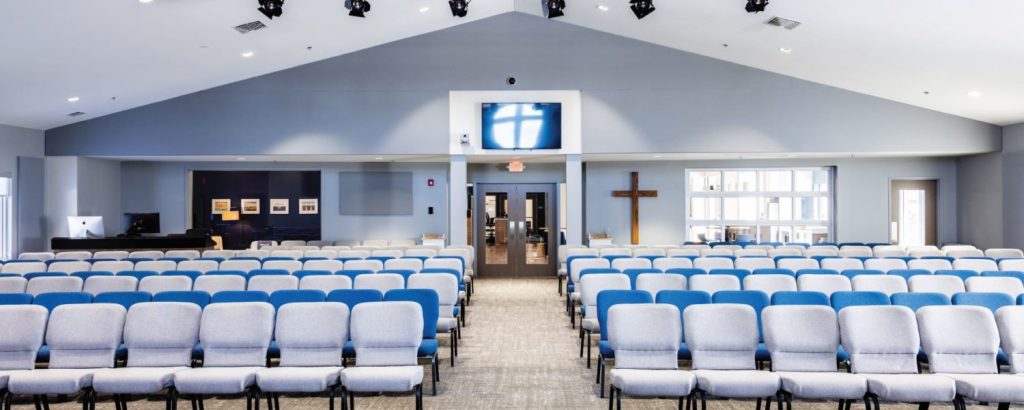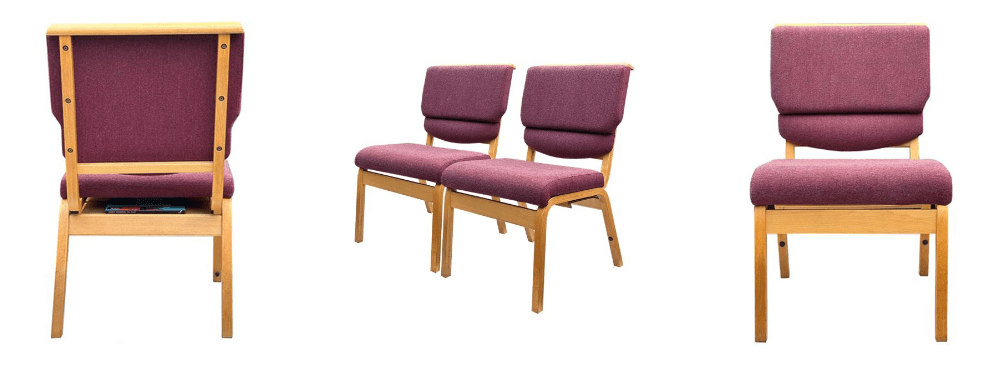
Creating Inclusive Spaces: The Role of Flexible Church Seating in UK Churches
In recent years, the landscape of worship spaces has undergone a transformative shift, driven by the desire to foster inclusivity and adaptability. One significant aspect of this evolution is the adoption of flexible seating arrangements in churches. This blog explores the dynamic relationship between flexible seating and the creation of inclusive and adaptable worship spaces in the context of UK churches. We’ll delve into the latest design trends and innovations in church furniture, with a specific focus on how modern styles are seamlessly integrated into traditional worship settings. Additionally, we’ll examine how the choice of seating, including church seating, plays a pivotal role in shaping the sense of community and comfort within these sacred spaces.
The Changing Landscape of Worship Spaces

Historically, traditional fixed pews dominated the interior of churches, reflecting a sense of permanence and stability. However, as societal values shift towards inclusivity and adaptability, churches are embracing a more flexible approach to seating. This shift is not just about rearranging chairs; it’s a fundamental rethinking of the worship space to accommodate diverse needs and foster a sense of belonging for everyone.
The Rise of Flexible Seating
Flexible seating refers to an approach where the seating arrangement is not fixed or predetermined, allowing for easy rearrangement and adaptation to various activities and events. This trend has gained momentum in churches as leaders recognise the need to create spaces that are welcoming to people of all ages, abilities, and backgrounds.
Inclusivity Beyond Tradition
Traditional pews often present challenges for individuals with mobility issues or parents with young children. Flexible seating options, such as moveable wooden church chairs or benches, ensure that everyone, regardless of physical ability, can comfortably participate in worship.
Adaptability for Varied Activities
Churches today host a wide range of activities beyond traditional services, from community events to contemporary worship services. Flexible seating allows for quick and easy reconfiguration to accommodate different activities, promoting a multifunctional use of the sacred space.
Design Trends in Church Furniture
The integration of modern design trends into traditional church settings represents a delicate balance between preserving heritage and embracing contemporary aesthetics. UK churches are navigating this terrain with finesse, incorporating the following design trends and innovations:
Versatile Seating Styles
The introduction of versatile seating styles, such as stackable chairs and modular benches, allows for easy rearrangement while maintaining a clean and modern look. This flexibility aligns with the diverse needs of congregations.
Comfort-Driven Design
Modern church seating emphasises comfort without compromising on aesthetic appeal. Cushioned church chairs with ergonomic designs provide a welcoming and comfortable environment, encouraging longer periods of engagement and participation.
Neutral Color Palettes
A move towards neutral colour palettes in church furniture contributes to a timeless and sophisticated aesthetic. Neutral tones create a versatile backdrop, allowing churches to easily adapt their spaces for different occasions and seasons.
The Influence of Seating on Community and Comfort

The choice of seating within a church extends beyond its functional purpose; it significantly influences the sense of community and comfort among worshippers. As churches transition to more flexible seating arrangements, they are mindful of the impact this has on congregational dynamics.
Facilitating Interaction
Traditional fixed pews can create a sense of isolation, limiting opportunities for interaction among worshippers. Flexible seating encourages congregants to engage with one another, fostering a stronger sense of community and connection.
Creating Inclusive Gatherings
The adaptability of flexible seating ensures that everyone can find a comfortable and accessible place within the worship space. This inclusivity is vital for creating an environment where worshippers feel seen, valued, and an integral part of the community.
Enhancing Worship Experience
Comfortable and adaptable seating contributes to a more immersive worship experience. Whether it’s through contemporary chairs or cushioned benches, the physical comfort of worshippers can positively impact their spiritual engagement.
Overcoming Challenges and Embracing Opportunities
While the shift to flexible seating in churches brings numerous benefits, it is not without challenges. Congregations and leadership may face resistance to change, nostalgia for traditional pews, or concerns about the aesthetic impact. However, these challenges present opportunities for open dialogue and collaboration, fostering a sense of shared ownership in the evolution of worship spaces.
The Future of Worship Spaces: A Harmonious Blend of Tradition and Progress
As churches continue to evolve their worship spaces, the harmonious blend of tradition and progress emerges as a defining characteristic. The adoption of flexible seating, coupled with modern design trends, reflects a commitment to inclusivity, adaptability, and a vibrant sense of community. The journey towards creating more welcoming and accessible worship spaces is ongoing, with each innovative step contributing to a tapestry that honours the past while embracing the future.
Conclusion
The role of flexible seating churches goes beyond mere furniture arrangements; it is a catalyst for fostering inclusivity, adaptability, and a stronger sense of community. The infusion of modern design trends into traditional settings represents a harmonious balance that respects the heritage of worship spaces while embracing the evolving needs of congregations. As the journey towards creating more inclusive and adaptable worship spaces continues, the impact of flexible seating on the spiritual and communal experience of worshippers remains profound and promising.

